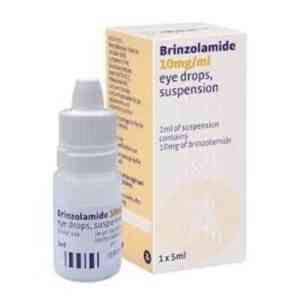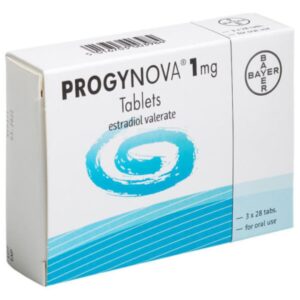- Co-Amilozide 2.5mg/25mg
- Co-Amilozide 5mg/50mg
- Description
- Additional Information
- Brand
- How To Use
- Product Details
- Side Effects
- Ingredients
- How to Store
- Patient Information leaflet
- Reviews (0)
- Questions & Answers
Co-Amilozide Tablets – Amiloride/Hydrochlorothiazide, 28 Tablets
Co−amilozide Tablets are a combination of medications used to treat high blood pressure and other medical conditions such as heart failure, hepatic cirrhosis, and fluid retention. The combination of Amiloride and Hydrochlorothiazide (HCT) provides more complete relief than either component alone.
Co-Amilozide is a safe and effective treatment option for those suffering from hypertension, heart failure, liver scarring, or water retention. Patients may notice an improvement in symptoms within days after starting treatment with Co-amilozide Tablets. This medication can also reduce the risk of stroke, kidney disease, and other cardiovascular diseases that are associated with hypertension.
Due to its dual composition of Amiloride and HCT, Co-Amilozide Tablets provide comprehensive coverage for managing several health conditions at once. Additionally, this medication is highly affordable so patients can get the best care without overspending.
It’s important to discuss any concerns or side effects with health care professionals before taking Co-Amilozide Tablets. However, this medication has been proven safe when taken according to directions given by your physician or pharmacist. With proper management and use of Co-Amilozide Tablets, you can improve your overall health while saving money on medical expenses.
Co-Amilozide Tablets can be used to treat dogs, cats and other animals when prescribed by a Vet.
Co-Amilozide Tablets is available in 2 strengths:
- Co-Amilozide 2.5mg/25mg
- Co-Amilozide 5mg/50mg
Co-Amilozide Tablets Reviews
After using Co-Amilozide Tablets, it’s helpful to let others know about your experience. Reviews of an item help other users know that medicines received have helped the condition it is claimed for, how well the treatment worked or any issues to be aware of. We invite our users to leave a review of both their treatment and of the service provided. Click on the reviews tab to see if there has been feedback on this item.
What is the price of Co-Amilozide Tablets?
The price of Co-Amilozide Tablets starts from £18.50
Where can you buy Co-Amilozide Tablets?
You can buy Loperamide 2mg Capsule at Dock Pharmacy Essex UK, UK Online Pharmacy.
Can you buy Co-Amilozide Tablets Over the counter?
Co-Amilozide Tablets is not available to buy over the counter. You need a prescription to buy Co-Amilozide Tablets
| Brand | |
|---|---|
| Strengths | 2.5mg/25mg Tablets, 5mg/50mg Tablets |
Brand
Co-Amilozide
How To Use
How to take Co−amilozide
Always take this medicine exactly as your doctor has told you.
Check with your doctor or pharmacist if you are not sure.
- These tablets are to be taken orally as a single dose in the morning.
- These tablets should be taken independently of meals and with a generous amount of fluid.
- The score line is only there to help you break the tablet if you have difficulty swallowing it whole.
Product Details
What you need to know before you take Co-amilozide
Do not take Co−amilozide if: • You are allergic to Amiloride, Hydrochlorothiazide, other Sulfonamide-derived medicines or any of the other ingredients of this medicine (See Section 6 “Contents of the pack and other information”) • If you have high levels of potassium in the blood [hyperkalaemia] (especially if you are elderly, diabetic or suffer from liver or heart failure), are currently taking potassium-sparing diuretics such as spironolactone or triamterene (see “Other medicines and Co-amilozide”), potassium supplements or potassium-rich foods (unless you have severely low levels of potassium and you are being carefully monitored) • You suffer from kidney failure, kidney disease or other kidney problems such as anuria (failure of the kidneys to produce urine) • You suffer from sever liver failure or severe liver disease (hepatic cirrhosis) • You suffer from Addison’s disease • You have high levels of calcium in the blood (hypercalcaemia). Treatment with Co-amilozide should be discontinued before carrying out tests for parathyroid function • You are taking lithium (see “Other medicines and Co-amilozide”) • You suffer from diabetes (see “Warnings and precautions” section) or diabetic neuropathy (kidney disease or damage that can occur in people with diabetes) • You have high levels of urea or creatinine in the blood (may be a sign of kidney problems) Warnings and precautions Talk to your doctor before taking Co-amilozide: • If you experienced breathing or lung problems (including inflammation or fluid in the lungs) following hydrochlorothiazide intake in the past. If you develop any severe shortness of breath or difficulty breathing after taking Co-amilozide, seek medical attention immediately • If you experience a decrease in vision or eye pain. These could be symptoms of fluid accumulation in the vascular layer of the eye (choroidal effusion) or an increase of pressure in your eye and can happen within hours to a week of taking Co-amilozide. This can lead to permanent vision loss, if not treated. If you earlier have had a penicillin or sulfonamide allergy, you can be at higher risk of developing this. • If you have high levels of potassium in the blood [hyperkalaemia] (especially if you are elderly or suffer from liver or heart failure) • If you are currently taking potassium supplements or potassium-rich foods (unless you have severely low levels of potassium and you are being carefully monitored) • If you suffer from kidney problems, including abnormally high levels of blood urea nitrogen (azotaemia) • If you show signs of fluid and electrolyte imbalance [symptoms include dry mouth, weakness, lack of energy, drowsiness, restlessness, fits, confusion, muscle pain, cramps, low blood pressure (hypotension), decreased production of urine (oliguria), faster heartbeat (tachycardia), feeling sick (nausea) or being sick (vomiting)]: o Low blood levels of sodium which can cause tiredness and confusion, muscle twitching, fits and coma (hyponatraemia) o Abnormally high alkalinity of the blood and body fluids (hypochloraemic alkalosis) o Abnormally low levels of potassium in the blood (hypokalaemia) o An abnormally low level of magnesium in the blood (hypomagnesaemia) • If you suffer from liver problems or liver disease • If you have an abnormally high level of uric acid in the blood (hyperuricaemia) • If you suffer from gout (pain and swelling in one or more joints) • If you are diabetic. The status of kidney function should be determined before Co-amilozide is given to known or suspected diabetics. Co-amilozide should be discontinued for at least 3 days before giving a glucose-tolerance test as HCT may impair the results. Diabetes may be caused or aggravated by treatment with Co-amilozide. Dosage adjustment of anti-diabetic medicines, including insulin, may be required (see “Other medicines and Co-amilozide”) • If you have increased level of fats (cholesterol and triglyceride) in your blood • If you suffer from or have previously suffered from increased acidity in the blood (acidosis) • If you suffer from Systemic Lupus Erythematosus (long-term inflammation of skin) • If you have had skin cancer or if you develop an unexpected skin lesion during the treatment. Treatment with hydrochlorothiazide, particularly long-term use with high doses, may increase the risk of some types of skin and lip cancer (non-melanoma skin cancer). Protect your skin from sun exposure and UV rays while taking Co-amilozide Other medicines and Co-amilozide Tell your doctor or pharmacist if you are taking, have recently taken or might take any other medicines, including medicines obtained without a prescription. This includes herbal medicines. Medicines which may interact with or be affected by Co−amilozide: • Medicines used to increase frequency of urination e.g. spironolactone, triamterene (potassiumsparing diuretics) • Potassium supplements • Medicines used to treat mood disorders e.g. lithium (anti−psychotics) • Medicines used to treat diabetes e.g. insulin, chlorpropamide (anti-diabetics) • Medicines used to treat certain rheumatic disorders such as aspirin or ibuprofen (Non−Steroidal Anti−Inflammatory Drugs − NSAIDs) • Medicines used to reduce the body’s immunity when receiving organ transplant e.g. ciclosporin, tacrolimus (immunosuppressants) • Medicines used to treat Cushing’s syndrome e.g. trilostane • Medicines used to treat high blood pressure such as enalapril (ACE [Angiotensin−Converting Enzyme] inhibitors). Co-amilozide should be discontinued for 2-3 days before starting treatment with an ACE inhibitor • Other medicines used to treat high blood pressure such as losartan (angiotensin II receptor antagonists) • Medicines used to lower cholesterol e.g. cholestyramine, colestipol • Medicines used to reduce inflammation such as prednisolone (corticosteroids) • Corticotropin (AdrenoCorticoTropic Hormone – ACTH) • Medicines used to treat serious allergic reaction (anaphylaxis) such as epinephrine (adrenaline) and noradrenaline (sympathomimetics) • Tubocurarine, a muscle relaxant • Barbiturates, a type of sedative medicine that causes relaxation and sleepiness such as phenobarbital • Narcotics, analgesic medicines used to relieve severe pain such as morphine Co-amilozide and alcohol During treatment with Co−amilozide, it is advisable not to drink alcohol as this may cause you to become dizzy or faint on standing up from a resting position. Pregnancy and breast-feeding Pregnancy You must tell your doctor if you are pregnant or if you think that you are. Usually, your doctor will advise you to take another medicine instead of Co-amilozide, as Co-amilozide is not recommended during pregnancy. This is because Co-amilozide crosses the placenta and its use after the third month of pregnancy may cause potentially harmful foetal and neonatal effects. Breastfeeding Tell your doctor if you are breast-feeding or about to start breast-feeding. Co-amilozide is not recommended for mothers who are breast-feeding. Driving and using machines Although rare, you may feel weak, tired, dizzy, dazed or experience a feeling of “spinning” (vertigo), whilst taking this medicine. If any of these symptoms are experienced, it may be necessary to avoid driving or operating machinery or pursuing any activity in which full attention is required. Co-amilozide contains lactose If you have been told by your doctor that you have intolerance to some sugars, contact your doctor before taking this medicine. Co-amilozide contains wheat starch This medicine only contains very low levels of gluten and is very unlikely to cause problems if you have coeliac disease. One Co-amilozide 2.5/25mg tablet contains no more than 41.5 micrograms of gluten. One Co-amilozide 5/50mg tablet contains no more than 83 micrograms of gluten. If you have wheat allergy (different from coeliac disease) you should not take this medicine.
Side Effects
Possible side effects
Like all medicines, this medicine can cause side effects, although not everybody gets them. Seek medical advice immediately if you develop the following symptoms: • Allergic reactions: swelling of the face, throat or tongue, fever, difficulty in breathing, dizziness • Severe blistering of the skin, mouth, eyes and genitals (Toxic Epidermal Necrolysis) [TEN] • Decrease in vision or pain in your eyes due to high pressure (possible signs of fluid accumulation in the vascular layer of the eye (choroidal effusion) or acute angle-closure glaucoma) Side effects (frequency not known) • Skin and lip cancer (Non-melanoma skin cancer) • Headache • Feeling of weakness • Tiredness (fatigue), mental numbness (stupor), sleepiness or drowsiness (somnolence) • Generally feeling unwell (malaise), • Fainting (syncope), dizziness, vertigo (sensation of whirling and loss of balance, feeling giddy) • Disrupted heart rhythm (arrhythmias), faster heartbeat (tachycardia), feeling your heartbeat (palpitations), partial heart block (electrical pulses that control the beating of the heart are disrupted) developing into complete heart block • Digitalis Toxicity (a poisoning that occurs when you take too much digitalis [also known as digoxin or digitoxin], a medication used to treat heart conditions) • Low blood pressure (hypotension) • Chest pain (angina pectoris) • Loss of appetite (anorexia), disturbed sense of taste, appetite changes, inflammation of the salivary glands (sialadenitis) • Feeling or being sick (nausea, vomiting) • Diarrhoea • Constipation • Stomach pain, cramping or irritation, feeling of a full stomach, feeling bloated/wind (flatulence), hiccups, activation of pre-existing stomach ulcer, indigestion (dyspepsia) • Inflammation of the pancreas (pancreatitis), bleeding in the stomach and intestine • Thirst, dehydration, dry mouth • Increased blood levels of potassium • Electrolyte imbalance (electrolytes are minerals such as calcium, chloride, magnesium, phosphate, potassium, and sodium. For the body to function properly, certain minerals need to be maintained in an even balance) • Low blood levels of sodium (hyponatraemia) • Pain and swelling in one or more joints (gout) • Rash, severe itching (pruritus), skin rashes with the formation of wheals (urticaria) • Flushing • Excessive sweating (diaphoresis), fever • Leg ache, muscle cramps, chest/back/joint pain, neck/shoulder ache, pain in arms &/or legs • Tingling or numbness in the hands or feet (paraesthesia) • Difficulty in sleeping (insomnia), restlessness • Nervousness • Shakiness (tremors) • Mental confusion • Depression • Shortness of breath or difficulty in breathing (dyspnoea), pneumonitis (inflammation of the lungs), excess collection of watery fluid in the lungs (pulmonary oedema), cough, blocked nose (nasal congestion) • Visual disturbances including a condition in which all objects appear to have a yellowish tinge to them (xanthopsia), blurred vision, increased pressure inside the eye • Inability to maintain an erection (impotence), decreased libido • Painful urination (dysuria), a need to wake and pass urine at night (nocturia), unintentional passing of urine (incontinence), increased production of urine (polyuria), bladder spasm, glucose in the urine (glycoscuria) • Kidney problems including kidney failure, inflammation of the kidney (interstitial nephritis) • Liver problems including yellowing of the skin or whites of the eyes (jaundice) • Hair loss (alopecia) • Disorder of the brain (encephalopathy) • Ringing in the ears (tinnitus) • Increased blood sugar levels (hyperglycaemia) • High level of uric acid in the blood (hyperuricaemia) • Abnormally low levels of potassium in blood (hypokalaemia) • Abnormal sensitivity of the skin to sunlight (photosensitivity) • Severe reduction in blood cells which can cause weakness, bruising or make infections more likely (aplastic anaemia) • Reduction in red blood cells which can make the skin pale yellow and cause weakness or breathlessness (haemolytic anaemia) • Reduction in blood cells which may increase the risk of bleeding or bruising (thrombocytopenia) and/or make infections more likely (leucopenia, neutropenia, agranulocytosis) • Inflammation and damage of the blood vessel walls that also affects the skin (necrotising angiitis, vasculitis, purpura) • Acute respiratory distress (signs include severe shortness of breath, fever, weakness, and confusion) – very rare side effect. Reporting of side effects If you get any side effects, talk to your doctor or pharmacist. This includes any possible side effects not listed in this leaflet. You can also report side effects directly via the Yellow Card Scheme at www.mhra.gov.uk/yellowcard or search for MHRA Yellow Card in the Google Play or Apple App Store. By reporting side effects, you can help provide more information on the safety of this medicine
Ingredients
What Co−amilozide contains:
- Each 2.5/25mg tablet contains 2.5mg of Amiloride and 25mg of Hydrochlorothiazide
- Each 5/50mg tablet contains 5mg of Amiloride and 50mg of Hydrochlorothiazide
How to Store
How to store Co−amilozide
- Keep this medicine out of the sight and reach of children. • Do not use this medicine after the expiry date which is stated on the container after “EXP”. The expiry date refers to the last date of that month. • Store below 25°C. Store in the original package in order to protect from light. • Do not throw away any medicines via wastewater or household waste. Ask your pharmacist how to throw away medicines you no longer use. These measures will help to protect the environment.
Patient Information leaflet
Click here for the Patient Information leaflet
Please read before using the product
Only logged in customers who have purchased this product may leave a review.
Questions and answers of the customers
There are no questions yet, be the first to ask something for this product.
Other Products From This Seller
Original price was: £68.00.£29.95Current price is: £29.95.
Calvin Klein CK Be Unisex Eau de Toilette Spray 200ml Fresh Floral Woody Musk Fragrance for All Experience the essence of individuality with Calvin Klein CK Be Unisex Eau de Toilette Spray 200ml, a fresh floral woody musk fragrance that celebrates uniqueness and self-expression. Launched in 1996, CK Be offers a clean and inviting scent […]
Learn MoreOriginal price was: £68.00.£29.95Current price is: £29.95.
- Availability: in stock
Original price was: £55.00.£24.95Current price is: £24.95.
Calvin Klein CK One Unisex Eau de Toilette Spray 100ml Fresh Citrus Fragrance for Men and Women Experience the iconic Calvin Klein CK One Unisex Eau de Toilette Spray 100ml, a fresh citrus fragrance that embodies individuality and unity. Launched in 1994, CK One has become a timeless classic, offering a clean and contemporary scent […]
Learn MoreOriginal price was: £55.00.£24.95Current price is: £24.95.
- Availability: in stock
Original price was: £30.00.£15.95Current price is: £15.95.
Quorum Edt 100ml Spray Classic Woody Aromatic Men’s Fragrance Experience timeless sophistication with Quorum Eau de Toilette 100ml Spray, a classic woody aromatic fragrance that embodies masculinity and elegance. Launched in 1981, this scent has stood the test of time, offering a distinctive aroma that leaves a lasting impression. Ideal for both daily wear and […]
Learn MoreOriginal price was: £30.00.£15.95Current price is: £15.95.
- Availability: in stock
Original price was: £24.99.£9.99Current price is: £9.99.
Police To Be King Eau de Toilette Spray 40ml Spicy Woody Men’s Fragrance Experience the essence of royalty with Police To Be King Eau de Toilette Spray 40ml, a spicy woody fragrance that embodies power and confidence. Launched in 2013, this scent offers a distinctive aroma that leaves a lasting impression. Ideal for the modern […]
Learn MoreOriginal price was: £24.99.£9.99Current price is: £9.99.
- Availability: in stock
Original price was: £60.00.£24.95Current price is: £24.95.
Ralph Lauren Polo Sport Fresh Eau De Toilette 125ml Fresh Citrus and Woody Men’s Fragrance Experience the invigorating energy of Ralph Lauren Polo Sport Fresh Eau de Toilette 125ml, a fresh citrus and woody fragrance that embodies the spirit of an active lifestyle. This scent offers a distinctive aroma that leaves a lasting impression. Ideal […]
Learn MoreOriginal price was: £60.00.£24.95Current price is: £24.95.
- Availability: in stock
Original price was: £45.00.£24.95Current price is: £24.95.
Paul Smith Men Eau de Toilette Spray 100ml Classic Woody Floral Musk Men’s Fragrance Experience timeless elegance with Paul Smith Men Eau de Toilette Spray 100ml, a classic woody floral musk fragrance that embodies sophistication and masculinity. Launched in 2000, this scent has stood the test of time, offering a distinctive aroma that leaves a […]
Learn MoreOriginal price was: £45.00.£24.95Current price is: £24.95.
- Availability: in stock
Original price was: £44.00.£24.95Current price is: £24.95.
Moschino Uomo Eau De Toilette Spray 125ml Classic Woody Oriental Men’s Fragrance Experience timeless elegance with Moschino Uomo Eau de Toilette Spray 125ml, a classic woody oriental fragrance that embodies sophistication and masculinity. Launched in 1997, this scent has stood the test of time, offering a distinctive aroma that leaves a lasting impression. Whether for […]
Learn MoreOriginal price was: £44.00.£24.95Current price is: £24.95.
- Availability: in stock
Original price was: £37.00.£19.95Current price is: £19.95.
MontBlanc Legend Red Eau de Parfum 30ml Bold and Charismatic Men’s Fragrance Experience the allure of Montblanc Legend Red Eau de Parfum 30ml, a bold and charismatic men’s fragrance that embodies modern masculinity. This scent is designed for the discerning man who exudes confidence and style. Whether for evening wear or special occasions, Montblanc Legend […]
Learn MoreOriginal price was: £37.00.£19.95Current price is: £19.95.
- Availability: in stock
Original price was: £52.00.£19.95Current price is: £19.95.
Ted Lapidus Lapidus Pour Homme Eau de Toilette Spray 100ml Classic Woody Aromatic Men’s Fragrance Experience timeless elegance with Ted Lapidus Lapidus Pour Homme Eau de Toilette Spray 100ml, a classic woody aromatic fragrance that embodies sophistication and masculinity. Launched in 1987, this scent has stood the test of time, offering a distinctive aroma that […]
Learn MoreOriginal price was: £52.00.£19.95Current price is: £19.95.
- Availability: in stock
Original price was: £90.00.£29.95Current price is: £29.95.
Joop Homme Eau de Toilette Spray, 200ml Bold and Oriental Men’s Fragrance Exude confidence with Joop Homme Eau de Toilette Spray, 200ml, a bold and sensual fragrance that celebrates masculinity and individuality. Known for its rich and oriental aroma, this iconic scent has captivated men worldwide. Perfect for evening wear and special occasions, Joop Homme […]
Learn MoreOriginal price was: £90.00.£29.95Current price is: £29.95.
- Availability: in stock

















Reviews
There are no reviews yet